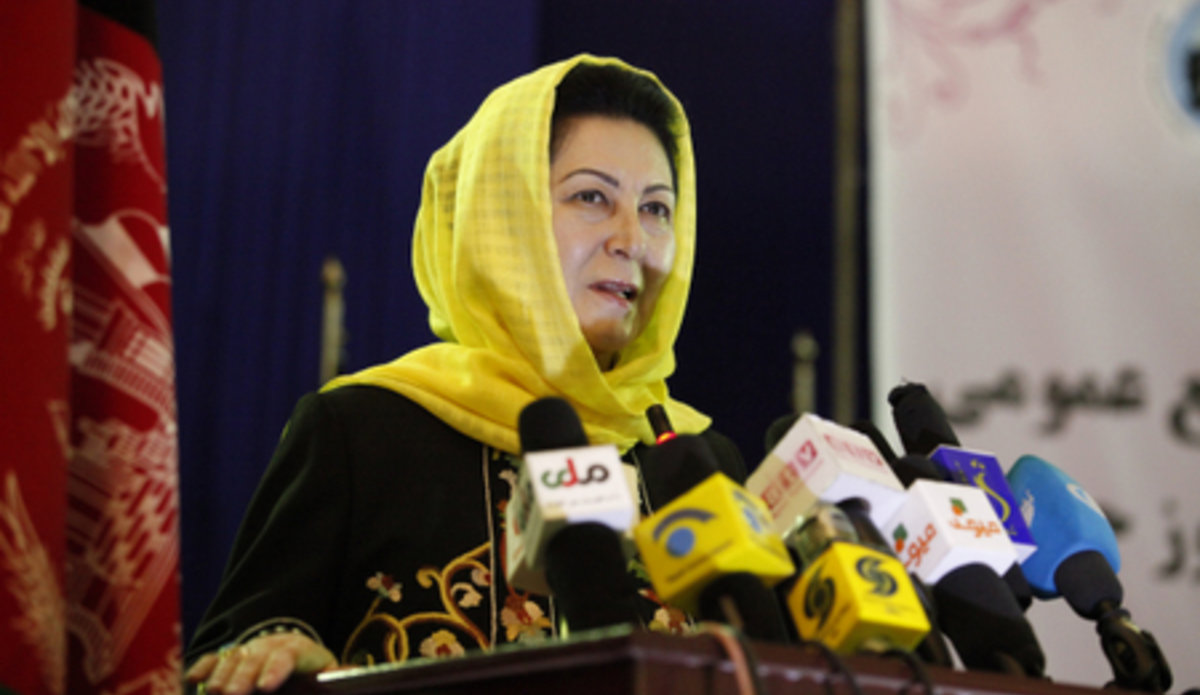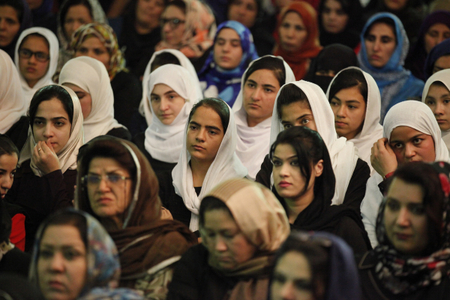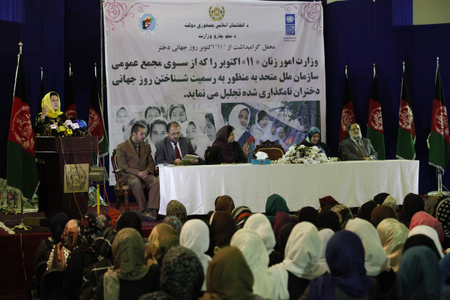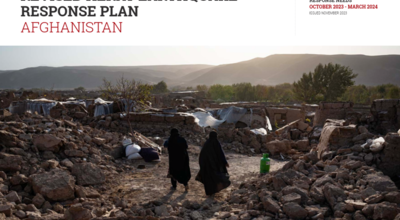Empowering girls to reach their full potential the focus of Kabul event
KABUL - Afghans marked the International Day of the Girl Child with speeches and cultural performances at an event that drew hundreds of participants in the country’s capital city of Kabul.
International Day of the Girl Child is recognized each year on 11 October, with the United Nations and its partners calling on governments around the world to take action to end all forms of violence against girls, and equip them with knowledge, skills, resources and power to determine their own path in life.
UN Secretary-General Ban Ki-moon, in a message for the day, urged governments to create a world in which violence against women and girls is never tolerated and girls are always empowered to reach their full potential.
“Girls are subjected to discriminatory social norms and harmful practices—such as female genital mutilation—that perpetuate a cycle of violence; a culture of impunity allows violence against adolescent girls to continue unabated,” said the world body’s chief.
“We must provide them with safe transport, and access to sources of energy and water, quality health services and supportive environments that will allow them to thrive,” he added.
Echoing the sentiments of the Secretary-General in a speech at the Kabul event, attended by high-level dignitaries from government institutions, Afghanistan’s Minister of Women’s Affairs emphasized the need for creating an environment conducive to giving girls a full spectrum of life opportunities.
“Formulation of appropriate laws, policies and plans as well as creating conducive environments for the capacity-building of girls, from an early age, are crucial for their empowerment,” said Husn Banu Ghazanfar, the Minister of Women’s Affairs.
A report released by the United Nations Children's Fund (UNICEF) to coincide with this year’s Girl Child events highlights the stark realities girls face, around the world, in their daily lives. The UNICEF report indicates that almost 25 per cent of girls worldwide, age 15 to 19, have been victims of some form of physical violence, and that more than 700 million women alive today were married before their 18th birthday.
The UNICEF report also highlights perceptions on the acceptability of violence, particularly among girls; globally, according to the report, nearly half of girls age 15 to 19 believe a man is justified in beating his wife or partner under certain circumstances.
“These numbers speak to a mindset that tolerates, perpetuates, and even justifies violence—and should sound an alarm to everyone, everywhere,” said UNICEF Deputy Executive Director, Geeta Rao Gupta, in a statement.
“The problem is global, but the solutions must be found at the national, community and family level,” Rao Gupta went on to say. “We have a responsibility to protect, educate, and empower adolescents; we are all accountable for ending violence against girls.”
At today’s event in Kabul, Minister Ghazanfar linked the empowerment of girls directly to the elimination of violence against women. She said that Afghanistan’s ministries are working to develop a plan in consultation with Afghan young people to help build a foundation for girls’ futures.
In a speech, Afghanistan’s Deputy Minister of Education, Asadullah Mohaqiq, said significant achievements have been made in educating Afghan girls.
“Twelve years ago, we had only one million students in Afghanistan with none of them a girl, but today we have 11.5 million students out of which 4.7 million are girls,” he said, noting that more than 200,000 teachers, some 31 per cent of which are women, currently work in more than 17,000 schools across Afghanistan.
Following the speeches, today’s event in Kabul included a lively discussion focused on developing opportunities to ensure the welfare of girls. Government officials responded to questions and concerns posed by girls attending the event.
The ceremony concluded not only with the distribution of awards to selected girls for their performance in different fields, but also with a theatre performance that highlighted the challenges girls face in Afghan society.
 UN
UN










